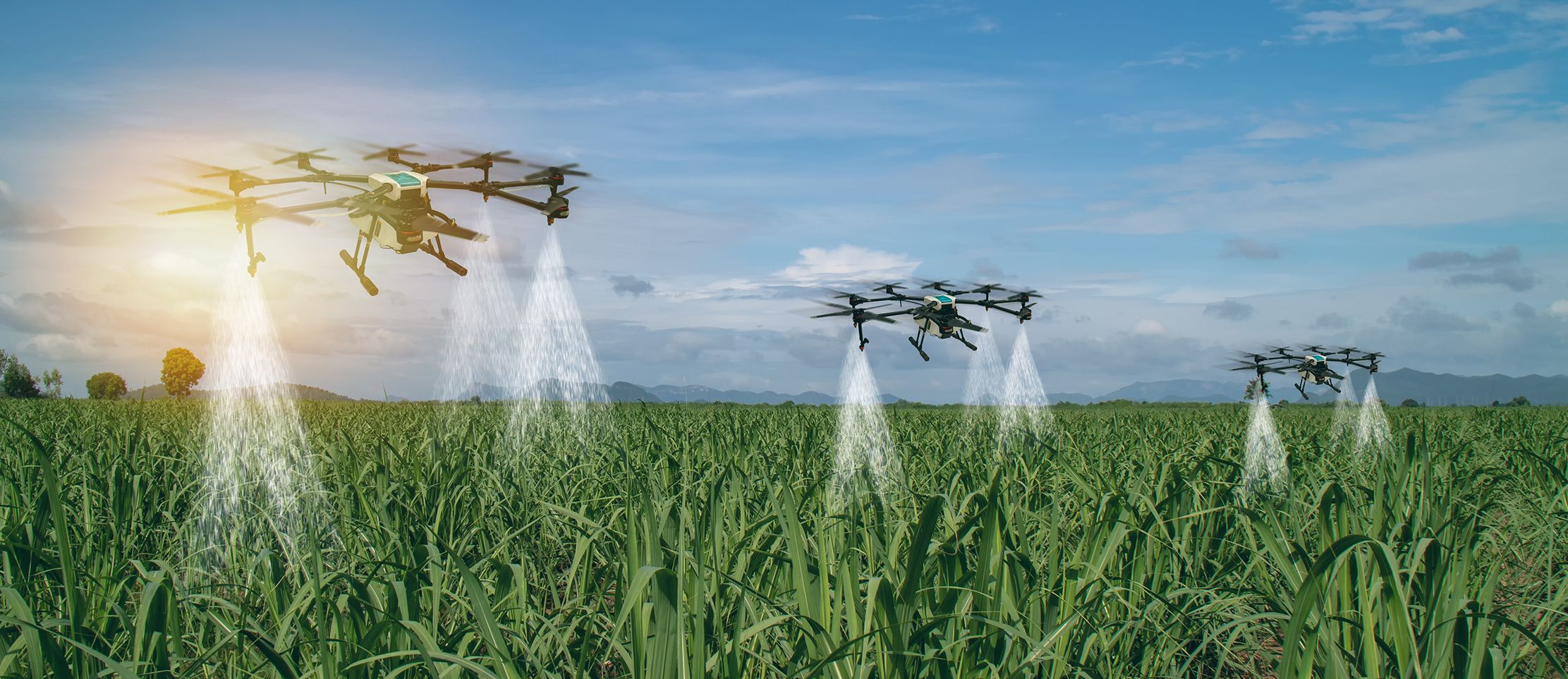
Farming-as-a-Service (FaaS) is a comprehensive suite of services designed to optimise every aspect of farming, starting with agronomy advice, powered by artificial intelligence and machine learning based on the millions of data points we generate each season.
By analysing the data collected from satellites, weather stations, and field sensors, farmers gain access to insights about their crops. They can make informed decisions regarding soil health, irrigation needs, pest control, and nutrient management, maximising their yields and minimising losses.
But FaaS doesn’t stop there. It transforms the entire agricultural supply chain. With new-age supply chain mechanisms, FaaS ensures seamless coordination between farmers, distributors, and retailers.
Real-time inventory management, demand forecasting, and efficient logistics guarantee that agricultural produce reaches the market fresh and at optimal prices. This not only reduces wastage but also eliminates the challenges posed by intermediaries, ensuring fair remuneration for farmers.
Satellite-based crop monitoring emerges as a game-changer in precision agriculture driven by FaaS. Farmers can remotely monitor their fields, leveraging high-resolution satellite imagery. They gain the ability to detect variations in crop health and identify potential issues before they escalate.
Advanced algorithms assess crop vigour, detect diseases, and predict yields with remarkable accuracy. This technology-driven approach minimises losses and saves farmers valuable time and resources.
FaaS also includes drones equipped with advanced sensors and imaging capabilities to capture detailed information about crop health, soil conditions, and irrigation requirements.
Farmers can swiftly address specific concern areas, preventing the spread of diseases or infestations. Furthermore, drones offer a cost-effective alternative to traditional manual labour for spraying and monitoring activities, reducing operational expenses and providing increased efficiency.
Recognising the significance of modern farming equipment, FaaS also facilitates the rental of essential machinery like tractors and harvesters to ease the financial burden on farmers, allowing them access to high-quality equipment on demand.
Small-scale farmers, who may have previously struggled to compete with their larger counterparts, can now leverage this to level the playing field, unlocking new avenues for growth and prosperity.
The impact of FaaS on agricultural productivity and sustainability is astounding. Studies have shown that implementing FaaS practices can increase crop yields by up to 30%, reduce water usage by 40%, and decrease fertiliser consumption by 20%. These statistics highlight the transformative potential of FaaS in addressing global food security challenges and creating a more sustainable future for agriculture.
In conclusion, FaaS represents a groundbreaking approach to agriculture, blending agronomy expertise with advanced technologies. It optimises farming practices, empowers farmers, and creates a sustainable future for agriculture.
It is not just a concept; it is a revolution that holds the power to transform the lives of farmers and shape the future of our food system. Together, let us embrace FaaS and pave the way for a new era in agriculture driven by innovation, technology, and a deep commitment to the well-being of farmers and our planet.
Pushkar Limaye is the CEO of Carnot Technologies.
Edited by Suman Singh
(Disclaimer: The views and opinions expressed in this article are those of the author and do not necessarily reflect the views of YourStory.)


![Read more about the article [Funding alert] Digital mortgage platform, LoanKuber raises $1.25M as part of its ongoing Pre-Series A round](https://blog.digitalsevaa.com/wp-content/uploads/2021/08/61-1629441484186-300x150.png)







